What is MINDFULNESS? An In-depth Guide on How to be more Mindful
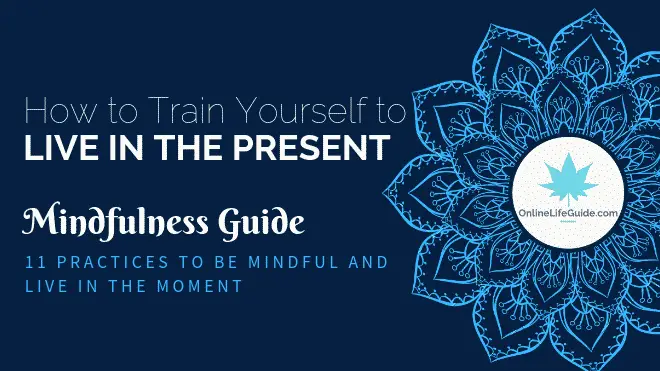
Being mindful and living in the present moment seems such a simple, straight forward, no-brainer thing, yet it seems to escape most of us. So much so that it has become a hot topic for many books, blogs, and seminars.
Why is it that such a simple thing as being mindful seems so elusive to apply in our everyday lives?
The answer is simple. We have not yet consciously trained our minds to operate in a more mindful manner.
Mindfulness is not usually our default state. We’ve got to program ourselves to be more mindful and sharpen our ability to pay attention to the present moment.
The more our consciousness grows, the more mindful we are.
In today’s age of information overload where we are constantly bombarded by the ever-increasing data and information, hundreds of messages and notifications, dozens of tasks in our daily to-do list, we spend most of our lives running from one thing to the next.
Even though with all the knowledge and information readily available to us, Deep reflective thinking and contemplation have become a rare occurrence in our lives.
Even with all the facilities and blessings available to us today than it has ever been in the history of humanity, we still rarely enjoy the small details of life and pay attention to our everyday blessings.
So in this guide, we’ll look into:
- What it really means to live mindfully
- What is MindLESSness
- How mindfulness impacts our experience of life
- 11 Mindfulness Practices that you can easily incorporate into your daily life to live more mindfully, develop an enriched experience of life, and enjoy every ounce of the blessing around you.
Towards the end of this guide, I have a 10-day action plan for you that is based on the knowledge and practical steps I’ll be touching upon throughout this guide. So READ THIS GUIDE MINDFULLY!
Before we dive into Mindfulness, we must first understand what is MindLESSness and how does it impact our everyday lives.
What is MindLESSness?
Have you ever thought of an old memory or saw an old picture/video and were surprised at how many years have gone by since?
Has it ever occurred to you that you passed by a place you’ve known for several years, yet one day you notice something that you never noticed before, even though it was right there all the time?
Have you ever bought your favorite thing to eat, but after just a few bites you lost track, and suddenly you were left with the wrapper in your hand?
Yep, that is mindlessness.
The consequences of being too mindless and living life unconsciously can be far worse than just missing out on the taste of your food or the details of your surroundings.
For many of us, our lives are passing us by year after year without we ever being mindful of our time.
Mindlessness is the reason why days pass by like hours, months pass by like days, and years seem to pass by as if they were months.
It even affects our health and physical well-being. Our bodies try to give us hints and signals of some possible issues that it might be having due to our lifestyle and eating habits.
But since we are seldom mindful of our bodies, we tend to ignore those signals until it becomes a bigger problem and reaches the point where there is no other option but to pay attention.
The same goes with the other areas of our lives. Our relationships, our professional life, our mental and spiritual health. If we are not mindful of them, we’ll fail to see the signals early on. And because of our mindlessness, those problems may eventually get to the point where we are left with harsh consequences and difficult decisions to make.
What Does It Mean To Be Mindful And Live In The Present Moment
Have you ever paid attention to what is usually going on in your head most of the time? Give it some thought. Where do your thoughts usually wander most of the day?
You might notice that the majority of your thoughts usually gravitate either towards what happened in the past (even if that’s just a few moments ago) or towards what will happen in the future (even if it’s just a few minutes ahead of the present moment).
This is how we miss out on the actual present moment.
Even at this very moment as you are reading this guide right now, in the back of your mind your subconscious thoughts might be wandering around what you’ll do later on today, or you might be letting something that has already happened occupy your mind and influence your moods in the present moment.
When we think about it on a deeper level, the past has already gone. Technically, the past is not there anymore except in our minds.
It’s mostly us repeating the same events, pictures, sounds, and feelings from the past over and over again in our heads. That is the reason why the past seems to affect our present so much.
On the other hand, the reality of the future is that it has NOT happened yet, except in our minds. In our heads, we keep making all kinds of assumptions regarding what might happen.
This is how we often overthink and put unnecessary stress on our mind and body.
The fact is, the past cannot be brought back, it has perished into non-existence.
Yes, the effects might be there in our present because we are “re-living” it constantly in our heads. Recreating the same experiences over and over again, oppressing ourselves, and doing injustice to our present life and it’s blessings.
The future, on the other side, is never guaranteed. You can’t even guarantee your next breath. As harsh of reality as it might seem, it is also liberating at the same time if you see in a positive light.
It’s great to plan ahead, in fact, it’s a must! I talk about living a life of vision and purpose all the time on this blog. But being obsessed with it to the point that you neglect what you have right now is, quite frankly, being ungrateful for the current blessings that we have.
A life of Mindfulness and Living in the Present is a life that is balanced between learning from the past, planning for the future, and at the same time remembering that neither the past nor the future exists at this very moment.
The present moment, the NOW, is all that we really have.
Major Benefits of Mindfulness
Mindfulness is a way of living in which you step outside of your automated, reactionary part of yourself (the subconscious mind) and begin to tap more into your consciousness, observing your thoughts, emotions, and actions almost from a third-person view.
It is obvious that living a more mindful life will impact every single area of our life, enriching our experiences, and allowing us to analyze and improve where needed.
1 – Stronger and Better Connection with ourselves
So many of us keep living our lives unconsciously in a reactionary state, often digging deeper and deeper holes of trouble, frustration, anger, and sadness, never stopping to think for themselves and reflect what is happening in their lives and within themselves.
Often such long periods of unconscious/mindless living create strong patterns of reactiveness and misery.
Since mindfulness, in essence, means tapping out of impulsiveness and living more consciously, it allows us the opportunities to analyze our thoughts and emotions from a neutral standpoint.
This helps us develop a better understanding of our own selves and how we operate. What works for us and what doesn’t. What are our strengths and weaknesses. Where do we need to improve.
Self reflection/self-analysis is actually you being mindful of yourself.
2 – Mindfulness in Relationships
Most problems in relationships are also caused by the lack of mindfulness and consideration towards each other.
When we cultivate more mindfulness in our relationships, we’ll begin to understand our partner better and avoid any impulses and reactions that might negatively impact our relationships and hurt our loved ones.
Since you are more aware of your self and your emotions, you’ll be able to manage your emotions better when it comes to your love-life.
Being mindful also allows us to be more empathetic towards our partner rather than judging them immediately out of reaction. As we pay more attention to our partner’s emotions, likes, and dislikes, we are able to create a more satisfying and fulfilling relationship for both.
3- Mindfulness at Work, Friends, and Other Areas of Life
By now you would have a good idea of how mindfulness can impact our lives in so many different way, and enable us to operate almost on a higher caliber of existence. Cultivating more maturity and wisdom into our lives.
It’s needless to mention all the great benefits and enrichment this attitude of living will provide for all the other areas of our life, whether it be our professional life, social circle, or our relatives.
11 Ways To Be More Mindful And Live In The Moment
1) Get Rid of the Things that You Don’t Need
We all have some possessions that we keep as a reminder of the past or things that we “think” might be of some use in the future.
Wouldn’t you agree that many of the things we hoard – that we think might be of importance – we rarely ever see them in years. They rot in our cupboards and closets never really seeing the light of the day.
But when someone tells us to get rid of them, why do we find it so difficult to throw them or give them away when we rarely even see them, let alone using them.
The reality is, it’s not actually about the usage of those material possessions but our psychological association with those things. We cling on to the past or to the worries of the future (as in we might need the things we hoard in the future that usually never comes 🙂 ).
Believe it or not, those things that we unnecessarily hoard put an indirect burden on our subconscious mind.
Consciously we might not pay attention to them on a day to day basis, but our subconscious mind keeps a track of everything.
That is the reason why when you rid yourself of those extra things, you will feel a deep sense of relief, almost as if a burden is lifted off of your shoulders.
Initially, you might feel some sense of loss because you had been clinging on to those things for a long time, but after a while, you will be relieved that you did that.
This is one of the most important practices to train your mind to Live in the Present Moment and focus on what is NOW, instead of subconsciously clinging to the past or future.
Several religious philosophies also encourage us to detach our hearts from the material possessions and live your life on this earth as if you are a traveler (as in the case of Islamic philosophy).
We ARE actually travelers that are here on this earth for a short amount of time before we pass on to the next phase of existence.
Mindfulness and Minimalism, even though these terms are new, the concept is not. It’s just that now it is being used in a modern, secular way, but it’s rooted in ancient wisdom and religious philosophies.
2) Don’t Dwell on What You Have Accomplished or Lost Yesterday
If you are too satisfied with your past achievements and are constantly talking about it to feel good, then you’re possibly missing out on the opportunity to do further greater things that might be in store for you.
It’s good to celebrate your accomplishments and feel good about them. But after that, we must move on with life and explore further. There is so much more to be accomplished in the present.
This might seem strange, but the reason why I’m mentioning this is that we see people talking all the time about “how much they’ve accomplished in the past” or “how their time in younger years was the best time ever”.
Often, it is evident that those people are almost frustrated with the present, and if they had a time-machine, they would certainly go live in their past.
But since we can’t do that, it’s not a very empowering way to live as if we are deprived of what we had in the past.
On the opposite side of the spectrum, it’s not healthy either to dwell too much on what is lost in the past.
Knowing that things happening for a reason, and trusting the higher wisdom is the key to be able to move on from the past and be in harmony with it.
Isn’t it unfair that we ignore our present time and blessings because we keep dwelling on our past?
There is so much life has to offer and we are constantly surrounded by so much blessings and opportunities to be happy. We just have to gently bring our attention to the present whenever we catch ourselves dwelling in the past. That’s all.
The more you do it, the more you’ll program your mind to stay in the present and focus on the Now.
3) Dive Back Within Your Body
One of the keys to living more mindfully is to “get back in your senses” literally.
We get so lost and distracted from the happenings of the outside world that we lose touch of the sensations within our bodies.
That is the reason why focusing on your breathing (we’ll talk about that in a bit) is often used as a simple mindfulness meditation practice as it is a great way to bring your attention back into yourself and ground your energy.
Next time when you see, hear, touch, taste, or smell something pleasant, notice the sensations in our body. How does it make you feel on the inside?
Cherish the good feelings and they will amplify.
Additionally, you can download my Guided Deep Relaxation Audio for FREE, in which I’ll take you through the full-body scan that’ll help you activate mindfulness throughout your body. It’s downloadable, so you can listen to it anytime, anywhere.
Make it a habit to just randomly dive back into your senses during any routine activity or situation, like when you’re talking to someone, or doing your chores, or working at your office.
You’ll notice a sudden shift in your state as if a switch just turned on and all of a sudden things begin to appear more clear, vibrant, and richly detailed.
4) Notice Your Thoughts and Emotions in the Current Moment
Draw your attention towards what you’re thinking and feeling right now. Notice and observe your thoughts and feelings/emotions without any judgment or coming to any conclusions. Just acknowledge them.
The practice of stepping outside of your mind to observe your mind is the Art of Mindfulness.
Notice how thoughts are flowing in your mind, how one thought leads to another, and then to another.
Noticing how your emotions and states shift from one to the next, without analyzing or judging. Just realizing, acknowledging, and observing.
Most of humanity is enslaved by their own emotions and their own mind and thoughts.
Mastering this practice will rid you of the slavery of your emotions and thoughts.
You are not your Mind, as Eckhart Tolle says. A mind is just a tool and a resource. Your core of existence is your soul.
I’m assuming that you might have heard of the famous book “The Power of Now” by Eckhart Tolle, if not I suggest that you give it a good thorough read. It’s up high in my list of top transformational books.
You can get it by clicking the book image below (both kindle and paperback versions are available):
When we learn to get out of our mind by observing the mind, we are, in essence, empowering ourselves to operate at the level of the Soul.
5) Write in a Journal/Diary
Make it a habit to maintain a life-journal where you write about your purpose, visions, goals, life learnings, and reflections.
Write your overall main purpose and vision for life, then your next 10 year goals, then the goals that you want to accomplish this year, and based on that, what are your goals for the current day, TODAY.
That is how you pull back from worrying too much about the future by doing the things you must do in the present to be able to achieve what you want in the future.
When you write you To-Dos down, whether it be a long-term or short-term list, you essentially take the burden off of your mind of remembering and worrying about everything that you want to accomplish in the near or far future.
Make sure all categories of goals are in alignment with each other and with your overall vision for life which ultimately serves your life purpose.
Again the purpose of this habit is to NOT live in the future or worry about it. It’s in fact, quite the opposite.
Often while setting goals, people tend to link their sense of happiness and fulfillment with the achievement of those goals, thinking that they will be happy or their problems will be resolved if a particular set of things happen in their lives.
This is not a healthy mentality.
The real purpose of this habit of maintaining a life-journal is so you live more consciously right NOW.
Instead of wasting time and energy in non-productive things or dwelling in the past or future, your energy gets focused on doing more purposeful things right Now so that you live every moment consciously and put mindfulness and care in whatever you do.
Plus writing allows you the opportunity for self-reflection and self-analysis which contributes greatly towards living more mindfully.
6) Practice Mindfulness Meditation
Mindfulness meditation is a simple exercise that has been on the rise for the past few years with a variety of mobile apps and videos/audios available online that guide you to constantly focus your attention as you meditate.
Such guided meditation practices are a good place to start if you’ve never tried it before. It’s good to have a voice guide you gently through the process.
The concept is pretty simple though and you can surely do it on your own if you like.
Just sit in a quiet and comfortable place, close your eyes, and draw all of your focus on your breath. Notice the sensation as you naturally inhale and exhale. Notice the flow of air in and out.
From time to time, external thoughts will wander into your mind and distract your attention. That is okay and bound to happen. Without any judgment, just gently bring your attention back to your breath.
If you’re new to this practice, your mind will wander more often. As you continue to do this practice regularly, you’ll gradually train your mind to stay more focused on the present moment, while the distracting thoughts and ramblings of the mind will begin to lessen the more you practice.
7) Be Mindful and Forgiving Towards Yourself
Often so many of us unconsciously try to escape and elude ourselves, not wanting to face the reality because it can be uncomfortable at times.
We try to escape those higher, uncomfortable, confronting problems and pressing questions by indulging in social media, binge-watching, binge eating, excessive shopping, porn, smoking, alcoholism, etc.
You may not recognize this pattern immediately because you might not be thinking about this on a conscious level. Just bring your attention to it from now onwards.
Begin to notice any such patterns in your life. Notice when and where do you usually fall into such impulsive patterns.
We Are Not Perfect
We are not perfect. Nobody is. We all have made mistakes, bad decisions, been lazy, took wrong steps. That is absolutely fine!
We have our strengths as well as our weaknesses. We have our achievements as well as our shortcomings.
We have been right in some places in life, and sometimes we also have been wrong.
That is what makes us human.
“All of the children of Adam are sinners, and the best sinners are those who repent.”
– Muhammad (pbuh)
Don’t allow your shortcomings and your weaknesses distance you from your own self. Accept and acknowledge your errors or flaws. It’s okay.
Become your own best friend. Instead of constantly escaping yourself through distractions, learn to spend time with yourself.
Learn to be comfortable with yourself without the constant need to distract yourself by checking your phone every few minutes.
From now on, just take notice of all these fidgety behaviors that we do constantly.
Wonder and gently ask yourself, why are you constantly doing this? What is it that your mind is trying to escape at the subconscious level?
8) Connect with Nature
With the advancements of technology and our urban lifestyle, direct exposure to nature is becoming a rare occurrence for most of us.
To maintain equilibrium in our lives and to ground our energy, it is very crucial that we make efforts to consistently stay in touch with nature in our regular lives. It should not just be limited to vacations, but a part of our daily routine.
We are made from the element of earth/soil, everything we eat comes directly or indirectly from it. Being in touch with the earth balances and grounds our overall energy.
So make it a practice to connect directly with the earth. Have a pleasant stroll on the grass or soil with bare feet. Experience that feeling consciously. Live in that moment.
Draw your attention towards how great it feels to walk bare feet on the cold, soothing grass. Notice how the entire body begins to calm and relax as your feet root down into the earth, stabilizing and grounding you like a tall strong tree.
Notice how it gently starts to revitalize and rejuvenate your mind, body, and spirit, from the bottom to the top.
Feel the wind blowing, the birds chirping, the sun rising or setting.
Pay attention to the tiny living beings in nature, insects, birds, small animals, flowers, trees, grass, everything doing their own thing in an organized fashion. All obedient to God and in harmony with the laws of the universe.
9) Try Digital Detox
As we discussed earlier, consumption of digital media (i.e. internet and television media, phone, and any forms of screens) becomes a source of distraction and escape at a time when we really need to pay attention and focus on getting our life together.
I personally found the practice of digital detox by intuition. Didn’t knew back then that “digital detox” was actually a thing.
I just decided to listen to my soul, my inner calling and it was screaming at me to take some time off from all kinds of digital media and to spend a few days living a more natural lifestyle, clean from all the information overload and free from constant subconscious interruptions and distractions.
Undoubtedly this was one of the greatest experiences and discoveries of my life.
Since the world is now finally waking up to the idea of living more consciously and naturally, digital-detox has become a known practice.
What is Digital Detox
The basic idea of digital detox is very simple. Just turn off any screen devices for a few days. That would include your phone, computer, any form of access to the internet, television, and radio. The amount of time you take off can vary. I personally recommend at least one week.
If you want to go through a greater transformation, try 2-3 weeks.
Digital detox is a process of exploring your true natural self and reconnect with your soul and the people you love.
The reason I recommend a minimum of 7 to 10 days is because it takes some time for our brain to revert back to its natural, dispositional function.
Initially, during the first 2-3 days, some might feel a strong urge to open up their phones or consume some form of media. This is the withdrawal syndrome and it shows how much we have become addicted and dependent on media. So much so, that we don’t even want to face ourselves and real life.
After around 3 days, you’ll begin to experience life as you’ve never experienced before. Trust me. You will only know when you do it.
You might also begin to notice, all of a sudden, how much time you have in a day. Sometimes one day might feel like two.
Now it is very important to note here that, taking off from digital media alone won’t be enough for you to change your life. You have to utilize this time in positive, self-care, and personal development activities. Don’t just spend this digital detox period waiting for it to be over. Use it to heal yourself, instead. Use it mindfully.
10) Books on Personal Development
Spending a good chunk of time reading good, growth-oriented books can immensely help in clarity of thinking. When you focus your mind towards beneficial knowledge and timeless wisdom, you start to understand and make sense of everything.
Take reading as a journey of learning, self-analysis, and reflection.
As you indulge yourself in a good book, new dimensions of thinking and perspectives with start to open up. You’ll find things you might have never thought of before. Actions and ideas that never passed the path of your consciousness.
Fix a good chunk of your time for reading. Start with 30 minutes a day. Then as you begin to get more involved in it, you’ll want to spend long spans of time totally immersed in reading. Exercising your intellect, thoughts, and imagination.
11) Quality Time with Close Ones
While being too focused on our own life problems, thoughts and worries, we often forget to cherish our biggest blessing of life, our family. As a result, we unconsciously distance ourselves from them, Over a period of time we notice that the quality of our relationships doesn’t seem to be the same as they once used to be.
No need to worry or regret though. It’s never too late to make things better again. We are humans and sometimes we don’t make the best of choices. It’s okay. We can make good choices now and fix things up.
Whether that is the case for you, or you have an amazing relationship with your family, either way, start spending more quality time with them.
Listen to them with patience and compassion when they discuss something with you or when they vent out.
Dedicate some time exclusively for having fun with your family. You don’t necessarily have to be extravagant and go out of the way to have some good time. A good, light-mood conversation while having some good old tea with your family will bring you joy.
Start to embrace the small joys of life, and that largely includes the daily time you spend with your family.
Set aside any conflicts and disagreements if there are any. We never know how much time we have together with our loved ones. Cherish it. Make the most out of it. Don’t leave any room for regret.
THE 10 DAY JOURNEY
While you must incorporate the above practices in your routine and make them lifelong habits, I would like to invite you to take the 10-Day journey to self-discovery and enlightenment.
Here’s how you do it. Take 10 days of Digital Detox and during that period, utilize your time by combining all of the above practices. You’ll be grateful that you experienced this 10-day life-changing journey.
- Pick a couple of good books on personal growth and wisdom, and indulge yourself in reading. Keep those books handy and read whenever you can throughout the day without any bounds of time. Immerse yourself fully in it.
- Give time to your health. Take out at least 30-45 minutes a day for your body. You can take a good walk, exercise with weights or do yoga. Whatever form of exercise you would like to do.
- Spend some time connecting with nature. Even if it’s watching the sky from your balcony, or going to a nearby park. Early morning time is ideal.
- Pray more often and talk to God.
- Meditate at least 10 minutes a day (mindfulness meditation by focusing on your breath. You can use Mindfulness meditation apps such as “Calm”).
- Spend quality, relaxing time with your family. Help out in daily home chores. Indulge in light, humorous conversations.
- Connect with other people. Get to know some new people or reconnect with those whom you haven’t seen in a while. Practice mindfulness as you interact with them.
Dedicate 10 days to your well-being, happiness, and growth. If any excuses are coming up in your head right now, make an excuse for all those excuses, not for your well-being and happiness.
Take the 10 Day Journey and make the most out of it. Believe me, these 10 days can change your life if you want them to.
The choice is yours. Till next time!
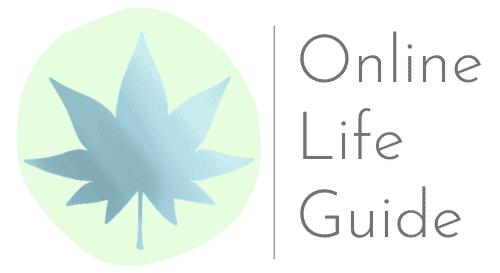

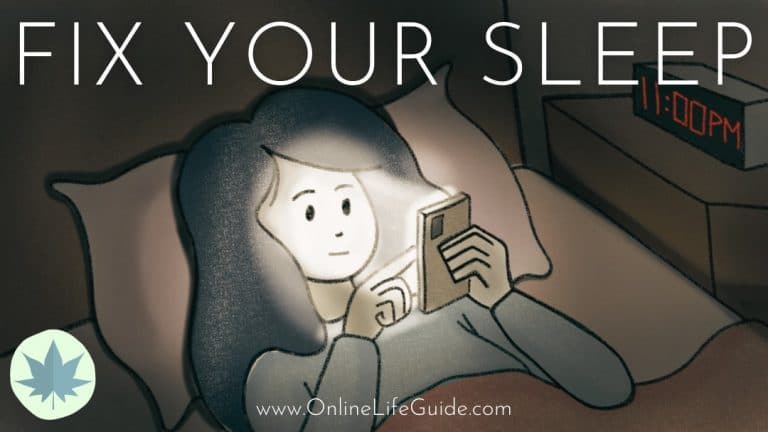


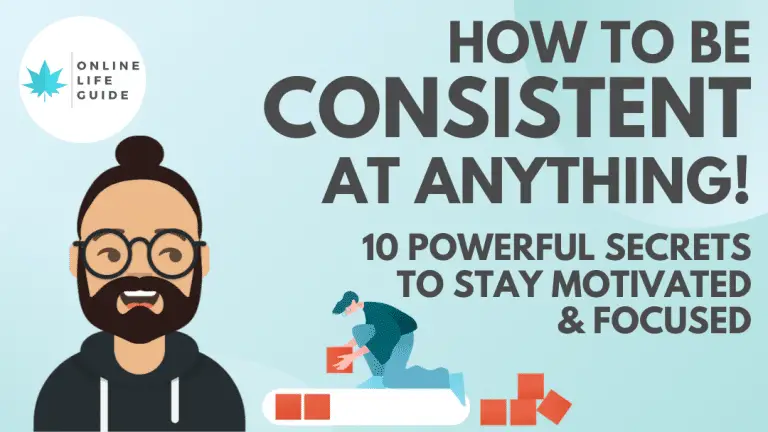
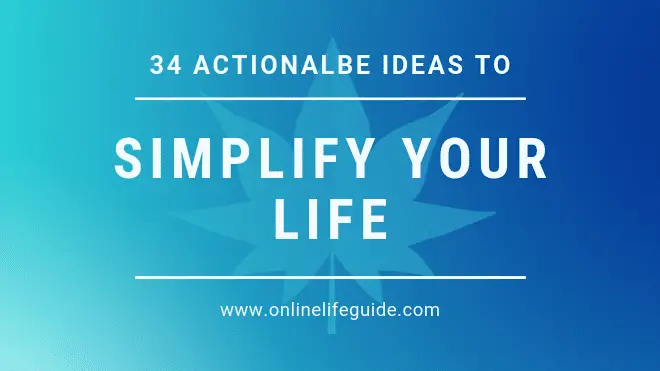
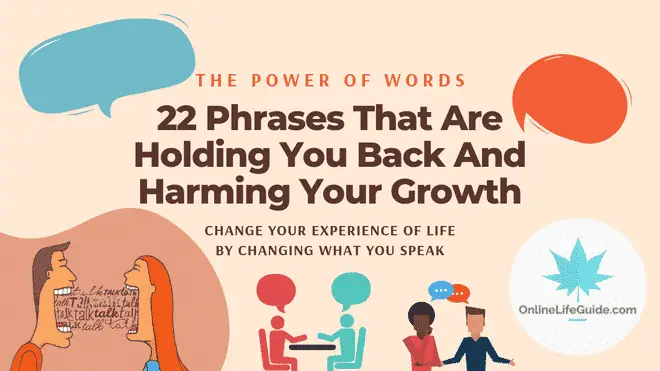

Beautiful post
God bless!🙏